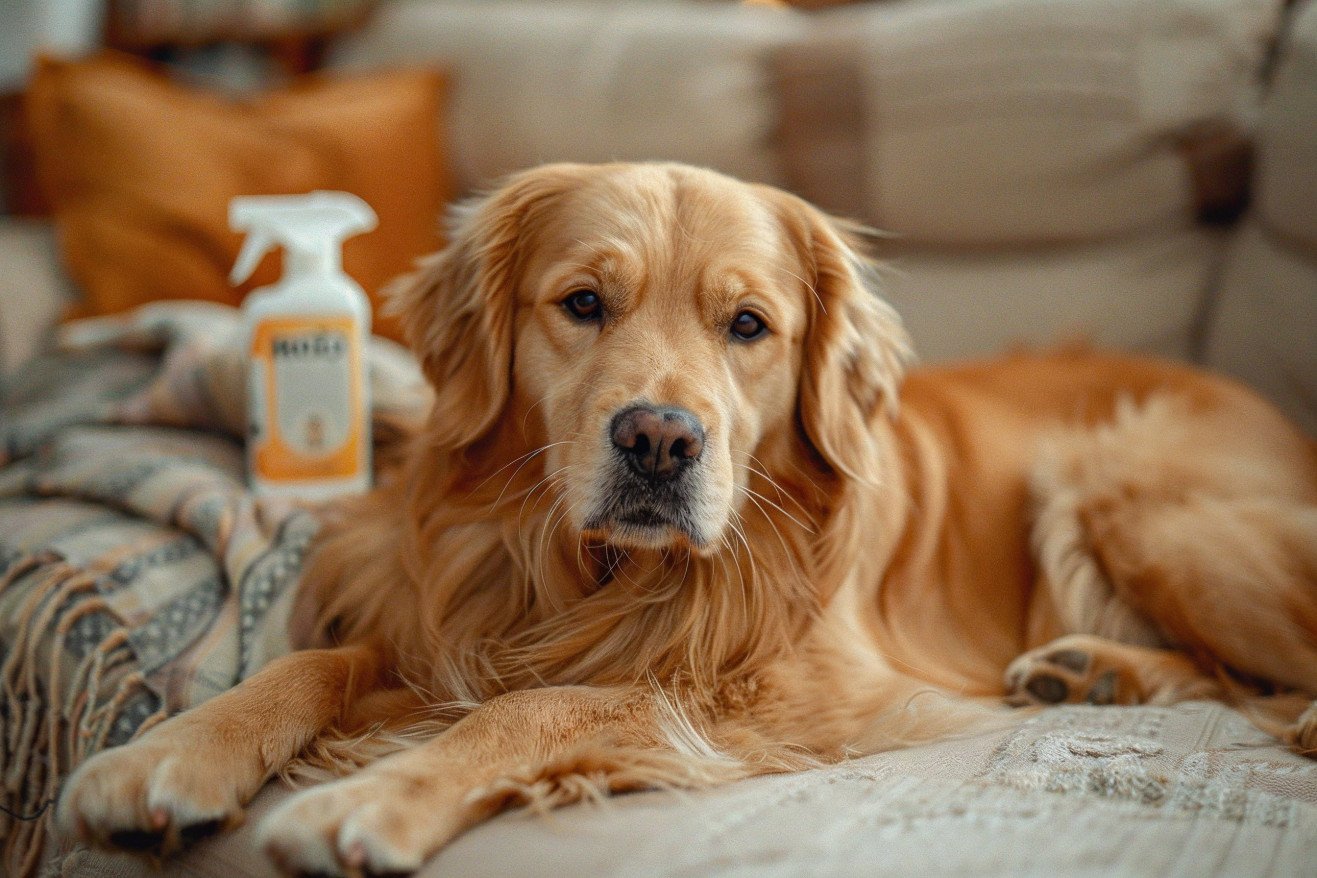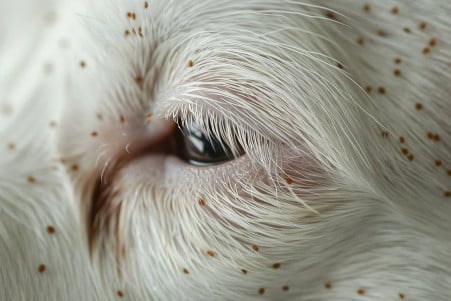Can Lysol Kill Fleas? What the Science Says
21 May 2024 • Updated 20 May 2024

If you’re trying to get rid of fleas and are wondering if Lysol can be used to help kill these pests, there are a few things to keep in mind. Lysol has ingredients that can kill fleas on contact, but it may not be as effective at killing flea eggs or larvae. To get rid of fleas completely, you should use an insecticide that’s specifically designed to kill fleas in addition to vacuuming and treating areas where your pets spend time.
To help you understand how effective Lysol and other disinfectants are at killing fleas, we’ll look at studies conducted by entomologists and pest control professionals. They’ll explain what’s in Lysol products, how they work with the biology of fleas, and the best ways to use them to kill fleas in different settings. Armed with this information, you’ll be able to decide whether or not you want to use Lysol as part of your overall plan to get rid of fleas.
Can Lysol kill fleas?
The Flea Life Cycle and Reproductive Potential
The life cycle of a flea includes four stages: egg, larva, pupa, and adult. According to Orkin, the life cycle can take as little as 2-3 weeks if the temperature and humidity are right. However, the different stages can last for a long time, which is why it can be so hard to get rid of a flea infestation.
Female adult fleas are able to lay as many as 50 eggs a day, and these eggs fall off the host and hatch into larvae in 1-10 days. The larvae then eat organic debris and flea feces before they make a cocoon and become pupae. The pupal stage can last for a few days or several months, as explained in this PetMD article.
The adult fleas then emerge from the pupae when they sense vibrations, increased CO2, or a host nearby. At this point, they need a blood meal to start the reproductive process and continue the life cycle. The fact that fleas can live through so many stages and that female adults can lay so many eggs makes it hard to control flea populations. If you use a product like Lysol to kill adult fleas, the eggs, larvae, and pupae will still be around to cause a new infestation.
Health Risks and Diseases Associated with Flea Infestations
Fleas can cause a number of health problems for pets, including flea bite dermatitis, tapeworms, and flea bite anemia. The CDC notes that flea bites can also cause secondary bacterial infections and skin irritation in pets and people.
Fleas can also spread several serious diseases to humans, including plague, typhus, and bartonellosis (cat scratch disease). Cats and dogs can also contract plague and typhus from infected fleas.
Because there are so many health risks associated with flea infestations, it’s important to make sure that flea control measures are in place to protect pets and their human family members. This means that a combination of treatments from a veterinarian, environmental control, and preventive measures are necessary to help keep these risks in check.
What Are Some Effective and Safe Ways to Get Rid of Fleas on Pets?
For pet owners, it's important to work with a vet to determine the best way to get rid of fleas on their animals based on their pet's medical history and the prevalence of fleas in their area, according to Wirecutter. Some of the most common flea treatments for pets include oral medications, topical treatments, collars, shampoos, and sprays. However, it's important to note that all of these treatments come with specific instructions and warnings, according to the American Kennel Club.
For pet owners looking for natural ways to get rid of fleas, Only Natural Pet recommends using essential oil-based repellents, flea powders, and feeding pets a healthy, raw diet to make them less appealing to fleas. In addition, regular vacuuming, washing pet bedding, and treating pet areas are all important parts of getting rid of fleas, according to the AKC Pet Insurance blog.
With a combination of these methods and working with veterinary experts, pet owners can get rid of fleas on their pets in a way that's both effective and safe, ensuring that their animals stay healthy and happy.
Natural and Nontoxic Ways to Get Rid of Fleas in the Home
The AKC Pet Insurance blog explains that diatomaceous earth and calcium carbonate powders can be sprinkled on carpets, furniture, and pet living areas to kill fleas through dehydration. The Only Natural Pet article also suggests using botanical-based sprays that include cedarwood oil and lemongrass on surfaces and pet bedding to repel and kill fleas.
For the yard, BeChewy recommends essential oil sprays, cedar mulch, and physical barriers to keep fleas away and manage infestations. DIY flea traps that use soapy water or light can also be used to catch and track flea populations, as the AKC Pet Insurance blog points out.
Keeping a clean house is important for getting rid of flea habitats. This includes regular vacuuming, laundering bedding, and just keeping things tidy in general, as all of the sources mentioned above point out. By using these natural and nontoxic solutions, homeowners can work to manage fleas in a way that doesn’t involve potentially harmful chemicals.
Safety and Drawbacks of Using Lysol to Get Rid of Fleas
Lysol is not formulated or marketed to kill fleas and may not be as effective as products that are, according to PetHelpful. Lysol should not be sprayed on pets because it contains chemicals that can lead to skin irritation, respiratory distress, and other health issues, according to Pest Source.
Lysol can be used to kill adult fleas on contact, but it should be used carefully and in a well-ventilated area due to its chemical makeup, according to Dog and Cat Boarding Kennels. Lysol does not kill flea eggs and larvae, so it should not be used as the sole method of controlling a flea infestation, according to all of the sources cited.
Instead, other methods, such as vacuuming, treating pet areas, and using insecticides, should be used in conjunction with Lysol to ensure that a flea infestation is fully controlled, according to Pest Source and Dog and Cat Boarding Kennels. This multi-pronged approach will help pet owners ensure that all stages of the flea life cycle are addressed and that the infestation doesn’t return.
Conclusion: The Best Way to Control Fleas Is to Use a Multi-Pronged Approach
While Lysol can kill adult fleas on contact, it isn’t a complete solution for flea infestations because it doesn’t work on all life stages. It’s important to know the flea life cycle and reproductive capabilities in order to effectively control fleas. Since flea infestations can lead to many health problems for pets and people, it’s important to make sure that control is comprehensive.
To control fleas in the long term, it’s best to use a combination of pet treatments, environmental treatments, and regular cleaning. It’s also important to work with a vet and to read and follow the directions on any products used to control fleas.


